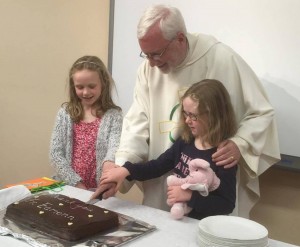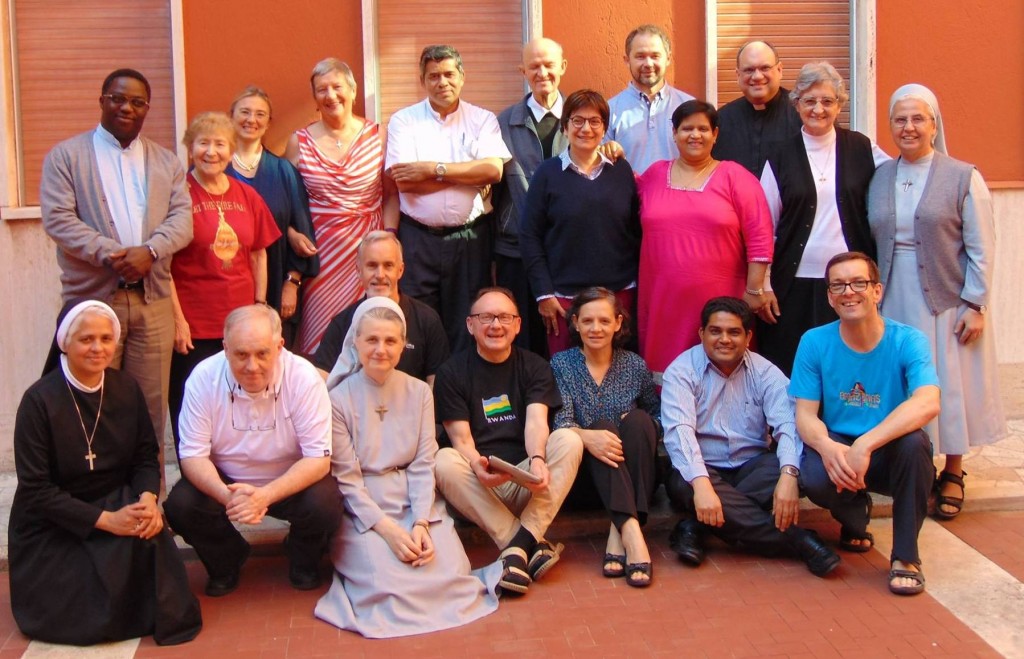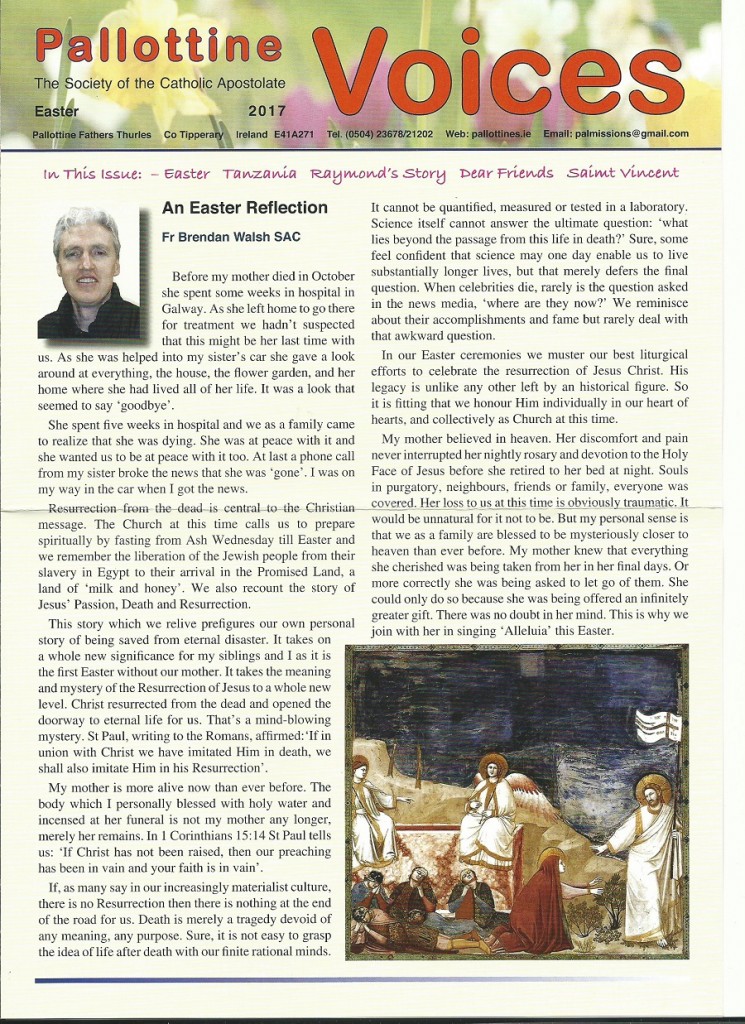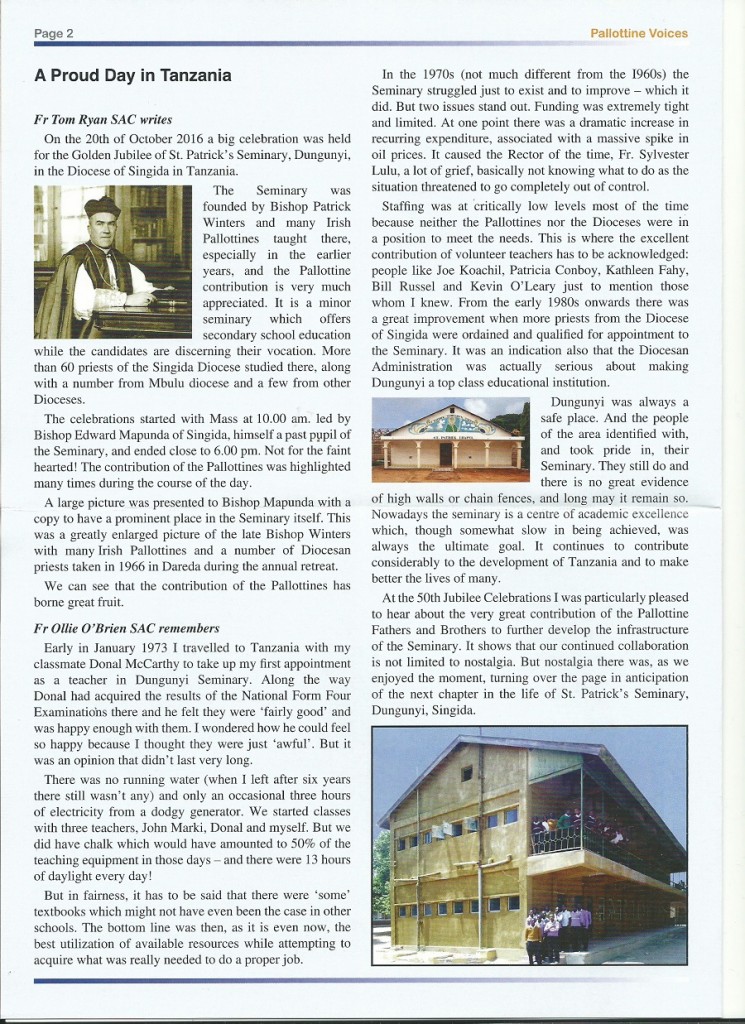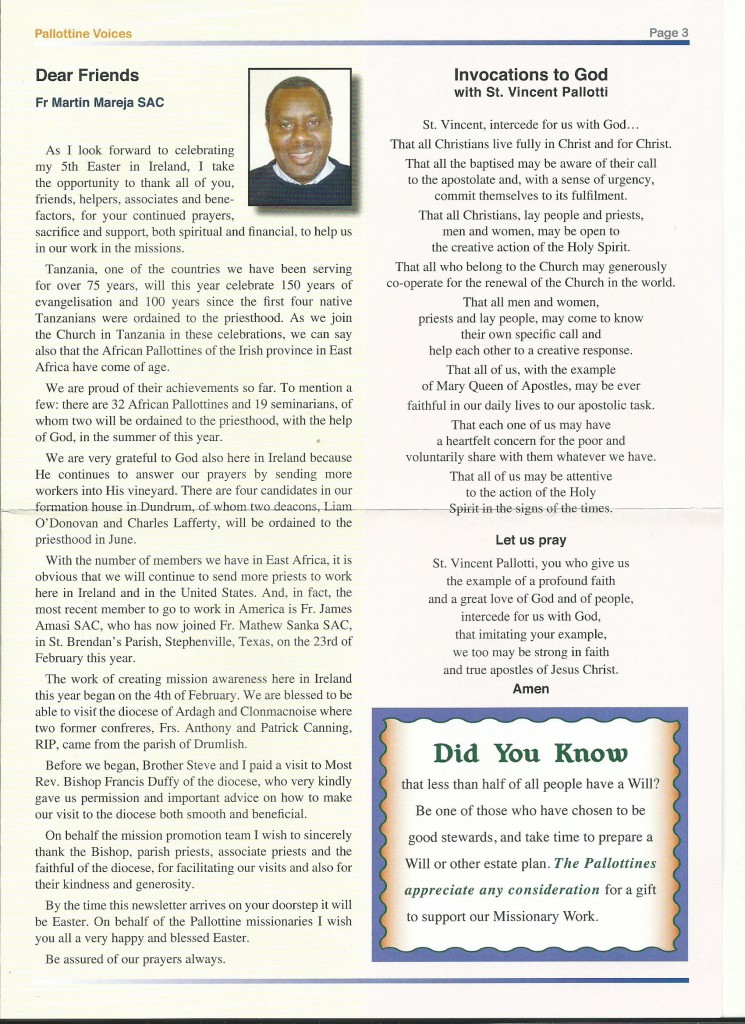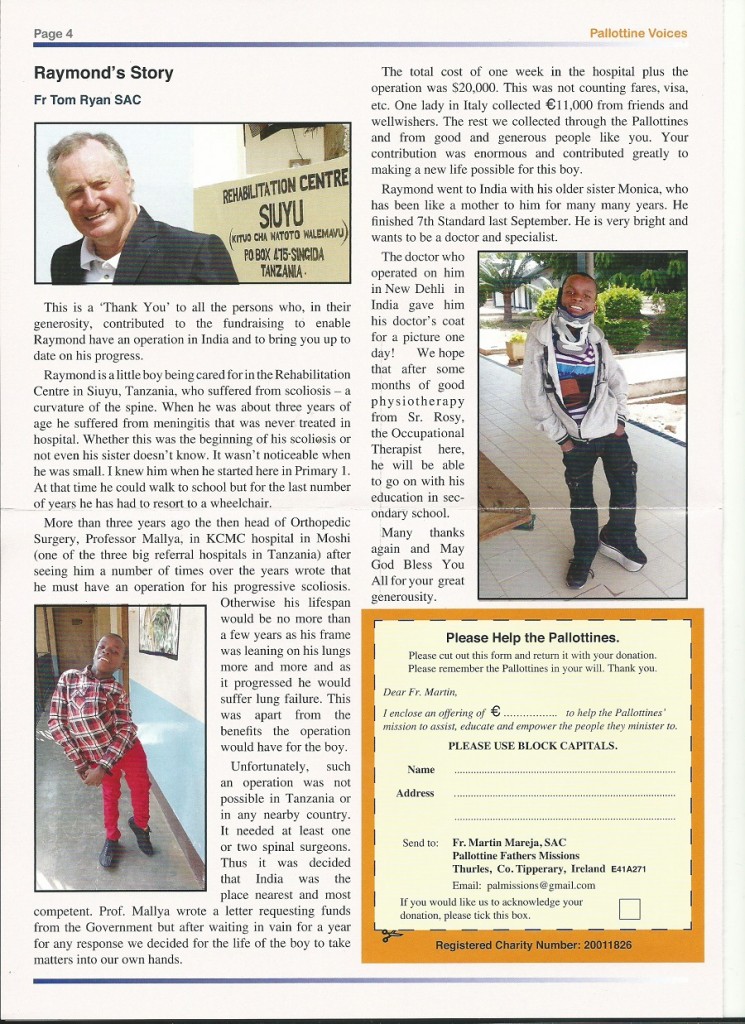It’s providential that we are saying farewell to each other on the feast of the Ascension, the day when Jesus and His disciples said goodbye. Somehow, I feel that our parting is graced by the Ascension, is lifted up with Jesus and then it becomes a sacred and holy experience, an experience in which separation and union become one and the same thing because we are all held together as one in Jesus, especially every time we come to Holy Communion at Mass.
In all my years of leaving different places I have never felt as emotional as I do on leaving Shankill. I have always said that you have taught me to be a real priest but I completely underestimated the depth and strength of the bond that exists between us and I have been really touched by your response to the news of my leaving that was announced a couple of weeks ago. We are truly one body, one spirit in Christ.
The preparation for my life here came in the form of the Camino to Santiago, a journey that emptied me of every burden and left me free to be filled with something new, something very precious. St. Paul talks to Timothy about becoming a vessel fit for noble use (2 Timothy 2:21) You have filled my cup and made of me a vessel fit for God’s lofty purposes.
It seems to me that I haven’t done all that much in my five years here and my strongest memory is of celebrating Mass at this altar – the ordinary Masses of every day and Sunday; the profoundly sorrowful funeral Masses; the beautifully innocent and joyful First Holy Communion Masses; Masses of healing and hope. In every Mass, we have come together to meet Jesus, to be touched by Him, filled by Him and in every congregation, I have seen the face of Jesus – the wounded and sometimes fearful face, the challenging face, the hopeful face of youth, the graceful face of age and always the loving face of Jesus.
So, like the first disciples in today’s gospel I have no hesitation whatever falling down on my knees to worship Jesus – Jesus in Himself and Jesus in you. I would kneel in love, I kneel as a sinner who has experienced Mercy and I kneel in the weakness of who I am because I have nothing of my own to boast about.
And of course, the children have always brought me to my knees. When I anoint a baby in Baptism I am often moved to kneel – in many other ways I kneel to a child because I find my true size and height in them. I have three beautiful nieces and five fine nephews who have blessed my life and the gospel I have so often preached is about children, especially my two youngest nieces Katie and Laura who have taught me so much about how to live a truly Christian life in a childlike way. Jesus himself places the child at the centre of the gospel, at the centre of the Kingdom of God.
This part is very difficult to speak of but it encapsulates everything that really matters! Two days ago at a special assembly in Scoil Mhuire, I came face to face with a little boy whom I love dearly, a boy who has suffered more than anyone I know in the past year, a suffering that is often misunderstood. He was crying so I went and knelt in front of him, hugged him and started crying with him. We sobbed together in that embrace, we ministered to each other, cried for each other and represented the love of God for each other. It wasn’t that I was minding him but he also was minding me. And a while later we came together in a lighter moment with a bit of a smile when he gave me a card, I gave him a high five and a teacher gave him a piece of chocolate cake. There has to be chocolate cake and God always gives us reason to smile after we have cried!
Yesterday, when I was praying the fifth Joyful Mystery of the Rosary, I realized that the encounter with this young boy was for me the finding of Jesus in the Temple and what I felt for him is what Mary and Joseph felt, what God Himself feels for the lost child in all of us.
Shankill represents the happiest period of my life but in every life happiness is often accompanied by pain and in such times, you need a place where you can be totally yourself, accepted in whatever state you’re in. I have found comfort in many people and a few good friends but there are two groups in particular who have sustained me through dark times – my family in Galway and my Pallottine community in St. Benin’s with Frs. John, Mike and Jaimie. It is a sustenance that is often without words, a safe place, a haven.
And so, as St. Paul said, “the time has come for me to be gone”, to go as Jesus Himself went “to other towns and villages” where the ministry of the Good News is needed. It is a calling from God and not just the arbitrary decision of my good friend and Provincial.
I already felt that call as far back as November. I was celebrating Mass at 8 one Sunday morning – and it might have been at the offertory – when I heard a seagull cry clear as a bell and a voice that seemed to say, “you will go to Hastings!” When God calls, the only thing to do is follow. And you have equipped me to do exactly that. You have given me plentiful food for the journey.
I pray that the God of our Lord Jesus Christ, the Father of glory, may give you a spirit of wisdom and revelation as you come to know him, so that, with the eyes of your heart enlightened, you may know what is the hope to which he has called you…” (Ephesians 1:17)

